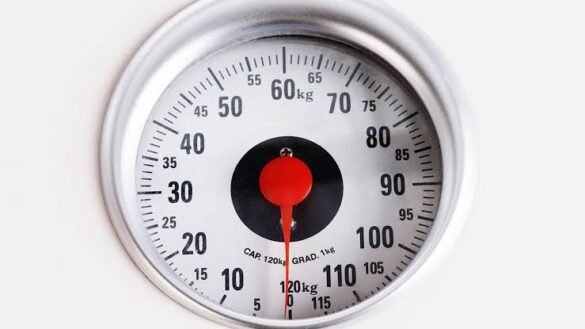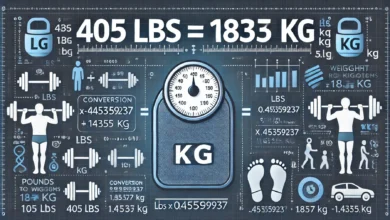132 Pounds to KG – Easy Conversion Guide & Weight Explained

Understanding weight conversion can be essential for various daily activities, especially when dealing with international systems. One of the most common conversions involves translating pounds to kilograms. If you’re asking how to convert 132 pounds to kg, you’re in the right place. This guide will explain everything in a clear and easy-to-follow format.
What Is a Pound and a Kilogram?
Before jumping into the conversion, it’s important to understand what a pound and a kilogram represent.
Definition of a Pound (lbs)
A pound is a unit of mass commonly used in the United States and a few other countries. It’s abbreviated as “lbs.” One pound is equal to approximately 0.45359237 kilograms.
Definition of a Kilogram (kg)
The kilogram, abbreviated as “kg,” is the standard unit of mass in the metric system. It’s used worldwide and recognized in scientific, educational, and commercial contexts.
The Formula to Convert 132 Pounds to KG
To convert pounds to kilograms, use the formula:
Weight in kilograms = Weight in pounds × 0.45359237
Applying this to our case:
132 lbs × 0.45359237 = 59.8742 kg
So, 132 pounds is equal to approximately 59.87 kilograms.
Why You Might Need to Convert Pounds to Kilograms
Understanding weight in different systems can be helpful in several scenarios:
- Travel: Different countries use different measurement systems.
- Fitness: Workout plans and body weight trackers might use kilograms.
- Healthcare: Many international medical guidelines prefer kilograms.
- Education: Science and math problems often use metric units.
Conversion Table for Pounds to Kilograms
Here’s a quick reference table for better understanding:
| Pounds (lbs) | Kilograms (kg) |
|---|---|
| 130 | 58.97 |
| 131 | 59.42 |
| 132 | 59.87 |
| 133 | 60.31 |
| 134 | 60.76 |
Practical Examples of 132 Pounds in KG
To put the weight of 132 pounds to kg in perspective:
- A medium-sized woman might weigh around 132 pounds.
- It’s roughly the same weight as a 10-year-old child.
- Some compact motorcycles weigh around 132 pounds.
These real-life comparisons make it easier to visualize the actual weight.
Using Online Tools for Conversion
Manual conversion is easy with a calculator, but several websites and apps offer instant results. Just type “132 pounds to kg” in your search engine, and the value appears at the top.
Benefits of Knowing Your Weight in Kilograms
There are specific benefits to understanding your weight in kilograms:
- Medical Reports: International doctors often refer to weight in kg.
- Diet Tracking: Nutritional apps often use metric units.
- Precision: Kilograms can be more accurate for measurements.
Common Mistakes in Weight Conversion
While converting, people may:
- Forget to use the correct multiplier.
- Round off values too early.
- Confuse pounds with stones or grams.
Avoiding these pitfalls ensures you always get accurate results.
Tips for Quick and Easy Conversion
If you’re frequently converting weight:
- Memorize the multiplier (1 lb = 0.45359237 kg).
- Use a reliable conversion calculator app.
- Bookmark a reputable website for conversions.
These simple habits can save you a lot of time.
FAQs about 132 Pounds to KG
1. How much is 132 pounds in kg exactly?
132 pounds equals 59.87 kilograms when rounded to two decimal places.
2. Is 132 lbs a healthy weight?
That depends on your height, age, and gender. Always consult a healthcare provider for personalized advice.
3. Can I use 0.45 instead of 0.45359237?
Yes, for rough estimates, but use the full value for precise results.
4. Why do some scales show weight in kg instead of lbs?
Because many countries and scientific fields use the metric system.
5. Are 132 pounds and 60 kg the same?
They’re close, but 60 kg is slightly more than 132 lbs. 132 lbs = 59.87 kg.
6. What is the fastest way to convert 132 lbs to kg?
Use Google or a mobile app for instant results.
Conclusion
Converting 132 pounds to kg is simple once you understand the basic formula. Whether you’re tracking fitness goals, traveling abroad, or just curious, knowing how to switch between pounds and kilograms can be quite handy. By using conversion tables, online tools, and avoiding common mistakes, you’ll always get accurate results.




